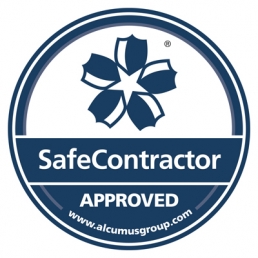About
History
G Filer Engineering Limited is a heavy engineering, metal and steelwork company based on the Isle of Wight.
With a long family history in metalwork, a vast amount of experience and knowledge has been passed down to the team, enabling them to undertake any task related to metal.
The idea of the company began by Graham helping out in the family business, M G Filer Ltd. Repairing vintage steam boilers led to Graham developing a growing interest in metalwork.
In 2008, after a number of years, G Filer Engineering was set up with the aim to work closer with fabrication.
The business maintained a steady growth, and in 2013 it became a limited company.
In the past years, the company has taken on a number of employees and is looking forward to continued success in the future.
Workshops
Facilities
With so many uses of metal we have the use of two separate workshops to ensure we can undertake all projects:
As well as traditional work, we benefit from modern machines and other resources at the workshop including the following:
- Arc, Mig, Tig & Gas Welding
- Horizontal and vertical metalworking
lathes from 10”x 24” to 60”x 120” - Horizontal and vertical milling
- Portable & stationary radial drill
- Bolt threading up to 3” Dia.
- Rolling up to 72” x 5/8”
- Presses up to 200 tonnes
- Riveting up to 60” reach
- Pipe bending
- Stress Relieving Furnace
- Profile burning
CE Marking (originally Conformité Européenne) demonstrates compliance with the appropriate manufacturing standard for a product. As a symbol, it will be familiar as it has been a requirement for many years on products sold in the European Union such as toys and electrical goods.
Under the Construction Products Regulation (CPR), new legal obligations have been placed on manufacturers, distributors and importers of construction products used within the EU to CE Mark their products where they are covered by either a harmonised standard or European Technical Assessment (ETA). This applies not only to constituent products (such as steel beams, bolts etc) but also to fabricated elements and systems made from both CE Marked and non-CE marked products.
In the UK, Trading Standards is the enforcement agency for non-compliance. Penalties for non-compliance include suspension notices, prohibition notices, notices to warn, and application for forfeiture. For certain offences the penalties may include a fine, imprisonment or both.
The CPR required the CE Marking of all construction products from 1 July 2013 and the CE Marking of fabricated structural steelwork from 1 July 2014.
The CPR describes the legal obligations it places on the construction supply chain in terms of ‘manufacturers’, ‘distributors’ and ‘importers’. However, the construction supply chain in the UK would normally be described in terms of clients, designers, specifiers, contractors and specialist subcontractors.
Local business G Filer Engineering Ltd has been awarded accreditation from Alcumus SafeContractor for achieving excellence in health and safety in the workplace.
Alcumus SafeContractor is a leading third party accreditation scheme which recognises extremely rigorous standards in health and safety management amongst contractors. It is used by thousands of organisations in the UK including SMEs and FTSE 100 companies.
Employing 5 people, G Filer Engineering is principally involved in the Engineering sector, specialising in heavy engineering, metal and steelwork, coded welding and fabrication.
In the UK, Trading Standards is the enforcement agency for non-compliance. Penalties for non-compliance include suspension notices, prohibition notices, notices to warn, and application for forfeiture. For certain offences the penalties may include a fine, imprisonment or both.
The CPR required the CE Marking of all construction products from 1 July 2013 and the CE Marking of fabricated structural steelwork from 1 July 2014.
The CPR describes the legal obligations it places on the construction supply chain in terms of ‘manufacturers’, ‘distributors’ and ‘importers’. However, the construction supply chain in the UK would normally be described in terms of clients, designers, specifiers, contractors and specialist subcontractors.


